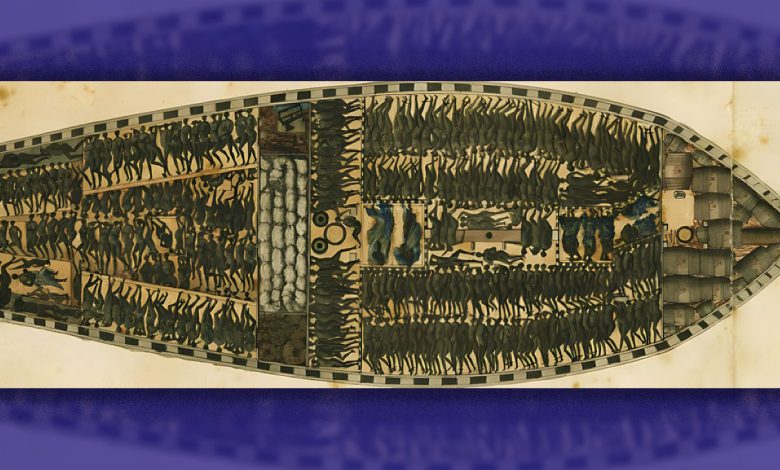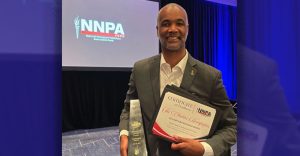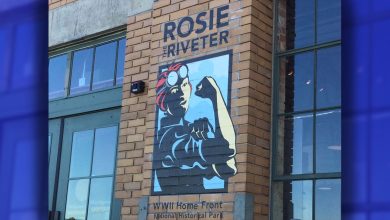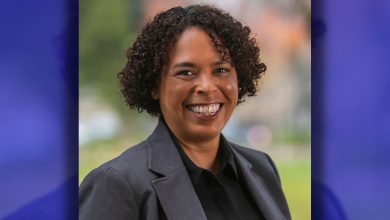Descendants of Enslaved Africans to Receive $50 Million as Part of Wealth-Building Initiative

By Antonio Ray Harvey
California Black Media
The California Task Force to Study and Develop Reparation Proposals for African Americans delivered its final report to the California Legislature two days before the July 1 deadline.
The nine-member committee submitted a 1075-page, brown-and-gold hardcover book with a comprehensive reparations plan that includes more than 115 recommendations and a survey.
Published by the California Department of Justice, the report documents the harms enslaved ancestors of Black Californians experienced during chattel slavery and the Jim Crow laws that followed. It also details the history of discriminatory state policies in California.
Attorney Kamilah V. Moore, the task force chairperson, provided a summary of the group’s activities over the last two years leading up to the compilation of the first-in-the nation report addressing the effects of slavery.
“As you all know, this illustrious nine-member California Reparations Task Force has been working diligently over a course of two years, not only to study the enumerable atrocities against the African American community with special considerations for those who are descendants of persons in slavery in the United States,” Moore said.
“Obviously, we’ve been working diligently to develop numerous policy prescriptions to end what we consider to be lingering badges of slavery in California as well,” Moore added.
Ironically, the Task Force’s last meeting happened the day the U.S. Supreme Court prohibited the use of race-based affirmative action in college admissions. A couple of task force members addressed the decision before the meeting but stayed focused on the release of the report.
Each page of the report explains reparations, evidence of past aggressions and systemic racism, and recommendations for restitution and atonement.
The report is 40 chapters, beginning with an introduction; followed by evidence of Enslavement; Racial Terror; Political Disenfranchisement; Housing Segregation; Separate and Unequal Education; Racism in the Environment and Infrastructure; Pathologizing the African American Family; Control Over Creative, Cultural, and Intellectual Life; Stolen Labor; and Hindered Opportunity.
“I would like to commend Gov. Gavin Newsom for making this Task Force a reality, Secretary of State Shirley Weber for authoring the legislation creating this Task Force, and each and every member of the Reparations Task Force who has worked tirelessly over the past two years,” said Assemblywoman Lori D. Wilson, chair of the California Legislative Black Caucus in a statement.
“The findings are clear. Lawmakers must take direct and determinative action to address the vast racial inequality which exists in California today,” Wilson said. “The California Legislative Black Caucus looks forward to partnering with the Newsom administration and our colleagues in the Legislature as we look towards the coming Legislative Session.”
Additionally, recommendations made by the task force include a request for a formal apology from the state and acknowledgment of discrimination against the descendants of enslaved Blacks.
“This work has been relentless, has been meticulous (and) it is unassailable,” Oakland-based civil rights attorney and task force member Lisa Holder said. “It has been a work of a collective. We partnered with the Department of Justice, we partnered with hundreds of scholars, and we partnered with the community.
“Public commenters and participants in listening sessions who poured out their hearts and souls told us some of the most devastating stories of racial discrimination. They shared their pain and made themselves vulnerable during this process.”
The task force decided on March 30, 2022, that lineage will determine who will be eligible for compensation, specifically, individuals who are Black descendants of enslaved people in the United States. If reparations become law, a proposed California American Freedmen Affairs Agency would be responsible for identifying past harms and preventing future occurrences.
The specialized office, with additional branches across the state, would facilitate claims for restitution, process claims with the state, and assist claimants in proving eligibility through a “genealogy” department.
Marcus Champion, a board member of the National Assembly of American Slavery Descendants Los Angeles (NAASDLA) and the Coalition for a Just and Equitable California (CJEC), is a longtime reparations supporter and one of the activists who worked with Secretary of State Shirley N. Weber when she was an Assemblymember to make Assembly Bill (AB) 3121, the law that established the task force, a reality.
Speaking at a CJEC gathering in North Sacramento after the final task force meeting, Champion said now is the time to persuade the Legislature to make reparations law.
“For us, on the ground as grassroots (organizations), we are about to start putting the pressure on the legislators to make sure that the words are right,” Champion told California Black Media.
“We’re about to make sure the community’s eligibility is right, make sure that there are cash payments, and make sure that this is not watered down and that this is real reparations.”
The 16th and final Task Force meeting was held in the First Floor Auditorium of the March Fong Eu Secretary of State Building in Sacramento on June 29. The facility was filled with an overflow of people waiting in the lobby and outside of the building.
All nine members of the task force were present as well as some of the speakers who testified before the panel over the last two years. California Attorney General Rob Bonta, members of the California Legislative Black Caucus, and Weber also spoke during the three-hour event.
“The policies and laws of this nation have affected every state and many instances beyond the state. It’s important to let people know that reparation is due whether you’re in Mississippi or you’re in California,” Weber said. “Reparation is due because the harm has been done. And we need to begin to repair the harm and stop patching it up as we’ve done for many years.”






